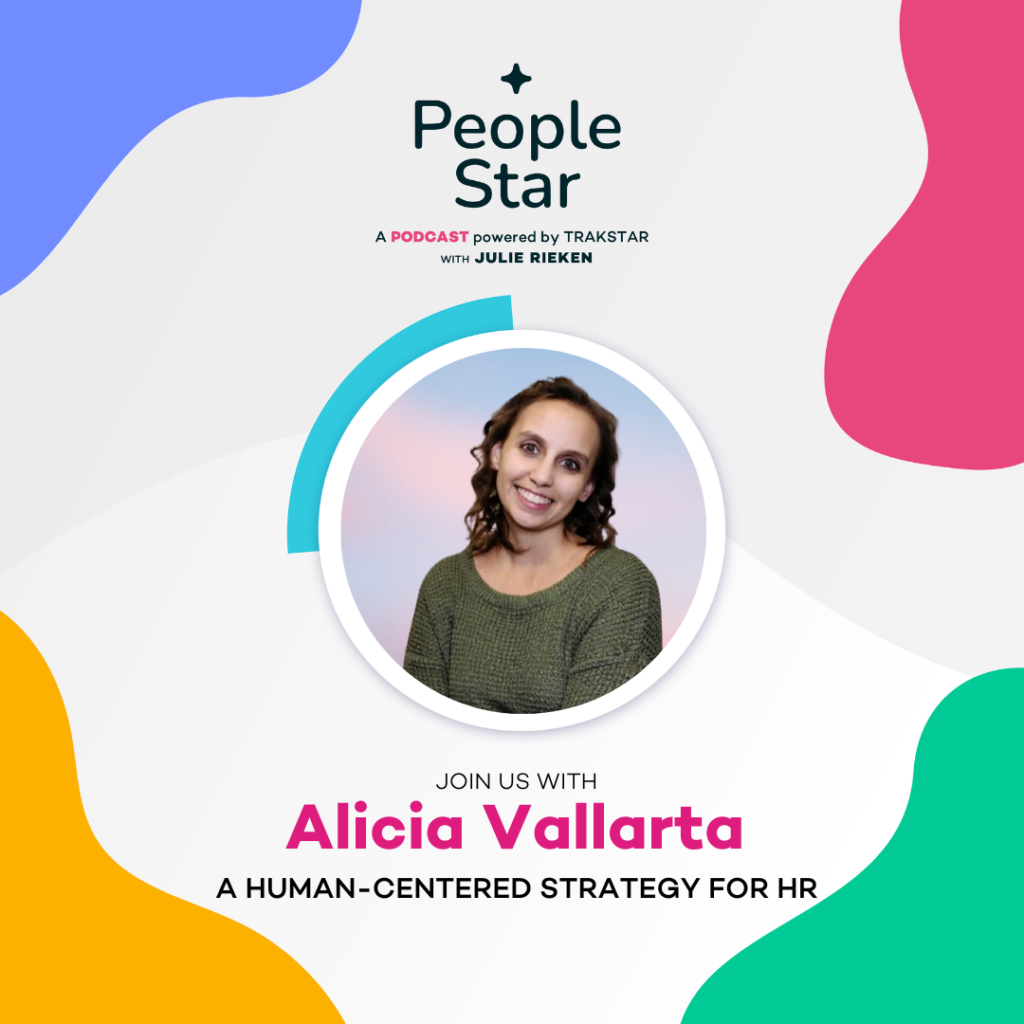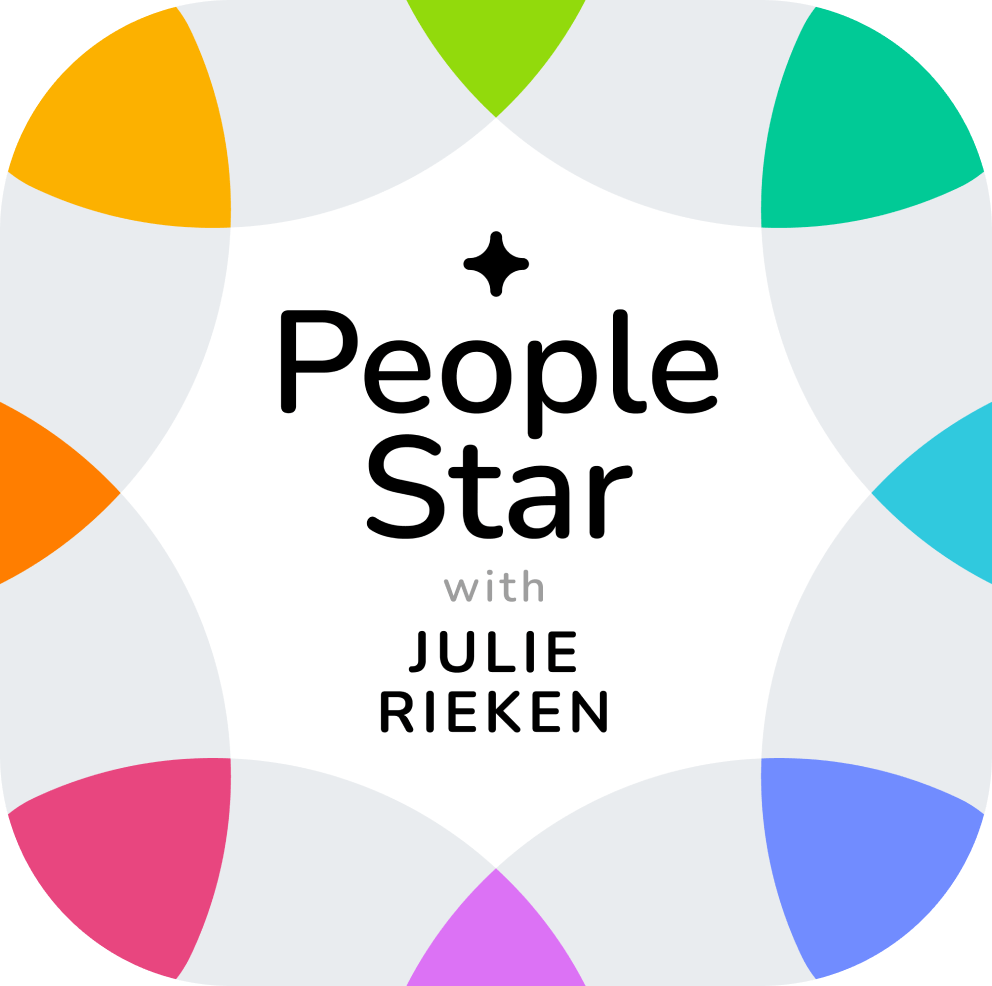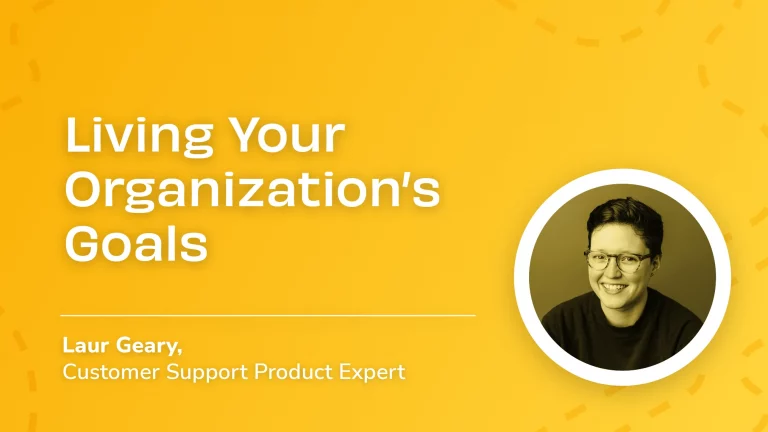PeopleStar_Alicia Vallarta: this mp3 audio file was automatically transcribed by Sonix with the best speech-to-text algorithms. This transcript may contain errors.
PeopleStar Intro:
Welcome to the PeopleStar Podcast. We deliver leadership perspectives from industry experts on their people, architecture, routines, and culture as they solve HRs newest challenges. And now your host, Julie Rieken.
Julie Rieken:
Good day PeopleStar Podcast listeners. Today is an awesome day. I've got Alicia Vallarta here today with me. Alicia works with United Minds, which is an organization that helps other organizations think about some super timely topics like change management, employee experience, and employee engagement. And Alicia's role is the senior manager of Employee Engagement and Change Management at United Minds. And Alicia, I'm super excited to get some ideas and thoughts from you today, welcome to the podcast!
Alicia Vallarta:
Thank you, Julie. I'm super excited to be here!
Julie Rieken:
Cool. We were getting started and one of the things that that was super interesting was I was asking Alicia a little bit about United Minds, and I think it's worth talking about here. Tell us a little bit about the beliefs at United Minds, at your organization, tell us a little bit about that.
Alicia Vallarta:
Sure. So our North Star at United Minds is to make business more human. And this is something that I think everybody in our organization takes very personally, not just internally, which we definitely make sure to do, and I think we may talk about that a little bit later. But we also work really hard to help our clients solve their business challenges with their people in mind, not just the people at their client side, but also their employees, especially. So this is something that we are all very passionate about, I think, when it comes to a belief system, this is something that we all truly believe is that we're all people, we're not just cogs in the wheel and people need to be treated like humans. And that's how you're going to get a best-in-class employee experience.
Julie Rieken:
That's awesome. And there's so much discussion about being more human these days in business, and I like that your organization is on the forefront of that. In fact, one of the things that we looked at, you and I, before we started our conversation were what are the things inside United Minds that, maybe traditions that you have inside the organization, that make it more human? And you mentioned one, and I'd love for you to tell the listeners about the fireside chats that you described and tell me what are they and why are they important to your organization?
Alicia Vallarta:
So United Minds is part of the Weber Shandwick collective, and so we are a small organization. We get to have that family feel, but we also get the benefit of a larger organization. And one of those many benefits that we have is called Time to Connect, which is essentially a fireside chat with our head of the DEI. These are hosted monthly and then ad hoc as some things happen in the community. And what these are is really an extraordinarily candid and very often emotional discussions just about what's going on in the community at large, in the world, that might be affecting our employees personally or professionally. It's something that I personally really love, no matter what I have going on, I will take a pause and join these meetings because it really helps us to make business more human by looking at ourselves first and saying like, hey, we're humans, we're going through something. Whether there's a shooting or recent ban on abortions that came down that was leaked, this is something that people are dealing with. And so we want to give people the space to say, like, hey, I've got something going on right now, can we talk about it? And then go back to our work feeling, I mean, more human.
Julie Rieken:
That's amazing. What you said, two words and I want to pull on that thread and see if there is something we can learn, some advice that we can get on how to do things like this. You said that these are, sometimes they're candid and sometimes emotional. And as a leader, I've got fear when you say those things. And yet you mentioned that these things are really advantageous to your group. How do you structure, how are these conversations structured so that they can be candid, emotional, and safe?
Alicia Vallarta:
That's a great question. And I think the biggest aspect to that is that our leader, the head of DEI for all of Weber Shandwick, she is very involved in them. Oftentimes, as you I'm sure can imagine, when we get started, nobody wants to say anything. Everybody's like, I don't want to be the first to speak. So she will. She'll say, well, here's what I'm feeling about this recent thing that came up, and I'm feeling very scared and I'm feeling sad or whatever, and she'll talk about it and then open the floor up for everybody else. And I think having a leader lead in that way and really show her vulnerability gives everybody else the permission to also be just open and honest about what they're feeling without the fear of retribution.
Julie Rieken:
That's a really important thing, having that vulnerability, and I can't imagine that's easy. Can I just ask you, when you see that, how does it change you in your role as a leader? Has it, has seeing that kind of, that kind of leadership with that vulnerability, has that affected the way you think about the way you lead employee engagement and change management?
Alicia Vallarta:
Absolutely. I think I've always been very empathetic, but not always at a, an organization that promotes that or that it applauds that even. And so I feel like communication in any type of relationship, but of course, also in a business relationship, internally and externally is super important. And in the current state, you know, after COVID and everything, so many people are working from home or have crazy lives with hybrid and stuff and trying to, trying to connect with people, if you dismiss that human aspect of like, oh, I have my baby on, you know, my baby's crying in the background or how my dogs are barking or I'm in the car because I have to go pick up my sick child or something, not being able to take that into account and just kind of dismissing that is really a disservice to not just the people but to your organization, especially in this economy, where the great resignation, people are leaving to find an organization that does take them seriously as a human being. And so I feel like I've kind of always been empathetic in my, in my own right, but now I make sure to also make that ok for others and to use my vulnerability to say, like, hey, I'm being vulnerable here. It's okay if you are too. And if you have something you want to share with me, we will definitely, if I can help you, I will help you. You know, if you need some time, if I can help you with your work because you need some time off, that is something that is, I think, very important to me and it's also very valuable in our organization. And so trying to teach our clients to like you have to lead with empathy, people are not to be used for your bottom line anymore, like people are where it starts for your clients and internally. So take care of your people. I don't remember who said it, there's some bigwig from, from a while ago that said, take care of your people and they'll take care of your business. And that's never been more true than it is right now.
Julie Rieken:
That's so true, super interesting. So I have one final question for you, and it might be a big one, but we've mentioned the idea of your fireside chats and leading with empathy, and there's been a lot going on in the world, the pandemic, the shift in the way we talk about abortions or have laws for them, school shootings, all of the things that that have been really heavy on the culture at large. And every one of those things can be a bit draining of energy, and yet when I'm looking at you, you have a lot of energy. So I'm interested in the reverse. What's giving you energy these days?
Alicia Vallarta:
So, Julie, when we can talk about this forever, I have four dogs and they are my constant source of energy. I'm an introvert, and so going out and being among people all the time, I'm one of those people that's like, why is it so loud in here? So having like four dogs, I can just go sit out in my back porch and read and snuggle my dogs or sit on the couch and just kind of have that companionship and get that that love that is so energizing to me. And that's why I keep I keep buying dogs, I keep adopting, I keep fostering, and my dogs are absolutely my source of energy.
Julie Rieken:
I love that. And that seems to make a good match with the way when you think about leading with empathy, that it seems to me like your native space is caring and you're caring for dogs and caring for others in your role and seems like this is a great match, your role is currently a great match. And this has been a super interesting conversation and I love your insights today. Thank you for joining us.
Alicia Vallarta:
Thank you so much, Julie.
PeopleStar Outro:
Thanks for listening to the PeopleStar Podcast. For the show notes, transcript, resources, and more ways to get a seat at the table, visit us at TrakStar.com/Podcast.
Sonix has many features that you’d love including powerful integrations and APIs, automated translation, upload many different filetypes, automated subtitles, and easily transcribe your Zoom meetings. Try Sonix for free today.




